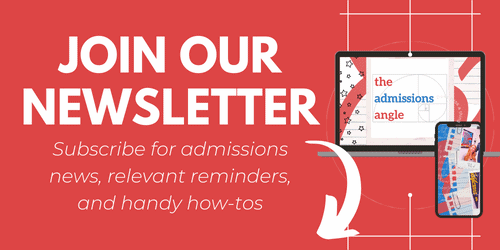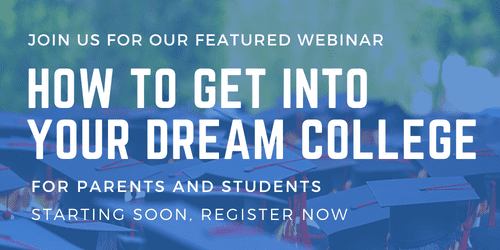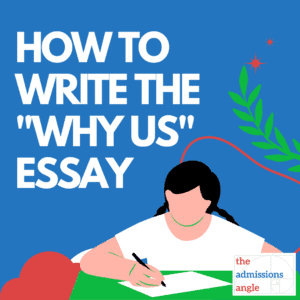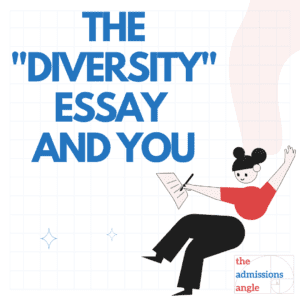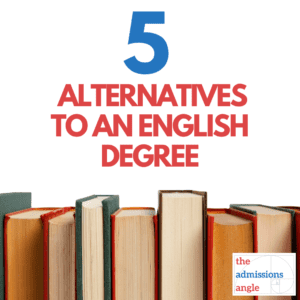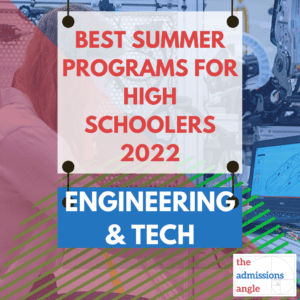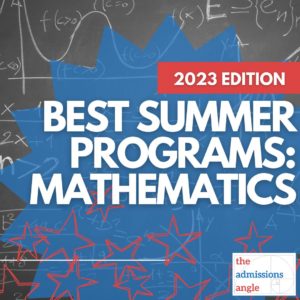
Best Math Summer Programs for
High Schoolers 2022
We’re back again with our list of math summer programs for 2022. If you’re really good at math or you just really love the subject, then these programs might be a great way to challenge yourself this summer. We believe that any program on this list is worthwhile, though experiences do vary.

By ALEX LOVELESS
***If you’re looking for our latest list, check out our Best Math Summer Programs for High Schoolers 2023 article***
Many of these programs are well-established, so the list remains mostly the same from last year, but we did make a few significant adjustments and correct some facts from our previous article. There may be some math summer programs that we don’t have experience with that deserve a spot on this list, but keep in mind our general advice for summer programs: most programs provide little to no admissions value and are quite expensive.
Math summer programs are really great opportunities to go beyond your high school math curriculum and tackle difficult mathematical quandaries. The first place you can observe this is the applications themselves, within which many programs require that students answer a challenging problem set. For the top programs, like Ross, PROMYS, and SUMaC, these problem sets are extremely difficult – much more difficult than you’ll find on the SAT/ACT Math, AP Calc BC, or even AMC 10/12 exams. The problem sets require a ton of critical thinking and demonstration of the way you think logically. Admissions officers are less interested in the answer you come up with than the work you show to reach those answers. This helps them get some insight into your mathematical problem solving methods and confirm that you reach the answer on your own. In most cases, the problem sets are released at a certain date and you are given a limited time window to solve and submit your solutions with your application.
The list below represents programs that we think are worthwhile to attend, especially if hosted in-person. While most programs are planning to be in-person again this summer, the variability of COVID could quickly change this and convert many programs back to virtual. Keep in mind that many of these programs, if in-person, will most likely require students to be fully vaccinated. This is by no means the complete list of worthwhile programs, just the ones that we have enough experience with to know that they should make the list. I’ve tiered the programs into four categories: S-Tier, A-Tier, B-Tier, and C-Tier so that you can get a better idea as to the competitiveness and admissions value of each distinct program.

S-Tier: Must Go If Admitted
1) MOSP (Math Olympiad Summer Program)
Program Dates: TBD Summer 2022
Registration Deadlines: AMC 10/12 exams were held early this year in November. This will likely be the month that AMC exams are administered in 2022 as well.
Cost: Free
International Students: No
The Math Olympiad Summer Program (MOSP) is the most selective math summer program in the US because it produces the US team that competes in the International Mathematical Olympiad (IMO), the most competitive high school math competition in the world. In order to qualify for MOSP, students must first take the AMC 10 (American Mathematics Competition 10) or AMC 12 exam and score sufficiently high enough to qualify for the AIME (American Invitational Mathematics Exam). Then, if the combined scores from AMC 10/12 + AIME are high enough, a student qualifies for the USAJMO/USAMO competitions (USA Junior Mathematical Olympiad/USA Mathematical Olympiad). The winners of this competition are invited to the MOSP.
Qualifying for the MOSP is an extremely long and challenging process. Only the absolute brightest mathematics students (about 60 high school students) can qualify for the summer program each year. Students qualify solely on their performance in the mathematics competitions listed above and have no essays to write. Taking the AMC 10/12 exams can be helpful to admission to some STEM schools, especially if you qualify for the AIME, so you may think about taking the test even if you feel you have no hope of making the MOSP summer program. But IF you’re able to qualify, you must attend.
Note: AMC 10/12 exam dates were pushed up to November from the normal dates in January/February. This decision was probably made to give students more time between the different rounds of tests but it also conveniently gives seniors the opportunity to take the test and receive a score in time to mention it on their college applications.
A-Tier: The Big Two
2) PROMYS (Program in Mathematics for Young Scientists)
Program Dates: July 3th – August 13th at BU (six weeks)
Application Deadline: March 15th, 2022
Cost: $5,500 (financial aid available)
International Students: Yes
3) The Ross Program
Program Dates: Ohio Dominican Campus June 15th – July 27th, Rose-Hulman Campus June 19th – July 29th (six weeks)
Application Deadline: March 31st, 2022
Cost: $6,000 (financial aid available)
International Students: Yes
This year, I decided to cut SUMaC from A-tier, leaving just the Big Two math summer programs. Both PROMYS and Ross are some of the most enriching academic experiences you can pay for. While they are less competitive than qualifying for MOSP, they are still extremely difficult to be admitted into. Each program’s acceptance rate has historically been under 10%, making them about as difficult to get into as many Ivy League schools. As such, many of the top universities in America, particularly the STEM focused schools, look extremely favorably on students who have attended these summer programs. They are some of the most challenging and rewarding camps for students that wish to expand their knowledge in mathematics.
Both PROMYS and Ross are similar in their focus on number theory, proofs, and research. These skills can be useful for the USAMO competition, but for the most part, work done at these camps doesn’t necessarily translate directly to better preparation for math competitions. Instead, they focus on the exploration of topics and the proof process. While research exploration is encouraged, none of these programs will produce a research level paper or project that you can submit to research competitions. They are mostly explorations of previously researched topics, which is still quite valuable.
Both programs are quite challenging, so you can expect to be assigned a lot of homework to work through between classes. While socializing certainly happens, much of it revolves around completing projects and problem sets, with many students forming study groups to help each other tackle the difficult assigned work. It is nice to see that both programs are attempting to go back in person for 2022 to encourage the in-person, collaborative pursuit of mathematics and make those lasting connections with peers and instructors.
College Admissions Services
Schedule a Free Consultation
Meet with a mentor one-on-one via video chat to talk about your son/daughter’s admissions plan. Afterwards, receive a no-obligation Customized College Roadmap (CCR) with advice on courses, extracurricular activities, standardized tests, and Admissions Angle strategy.
B-Tier: Competitive, Challenging Experiences
4) SUMaC (Stanford University Math Camp)
Program Dates: (Online) Session 1 June 20th – July 8th, Session 2 July 18th – August 5th (3 weeks)
Application Deadline: March 15th, 2022
Cost: $3,250 (financial aid available)
International Students: Yes
5) Canada/USA Mathcamp
Program Dates:July 3rd – August 7th at Colby College (5 weeks)
Application Deadline: March 10th, 2022
Cost: $4,500 (financial aid available)
International Students: Yes
6) HCSSiM (Hampshire College Summer Studies in Mathematics)
Program Dates: July 3rd – August 13th at Hampshire College (six weeks)
Application Deadline: Problem Set released late March, rolling admissions but usually run out of spots in mid April
Cost: $4,913 (financial aid available)
International Students: Yes
7) MathILy at Bryn Mawr College
Program Dates: July 2022 (Exact dates and online/residential TBD)
Application Deadline: April 26th, 2022
Cost: if online – $2,150, if residential – $4,950 (financial aid available)
International Students: Yes
There are certainly arguments to be made for some of these programs to change spots, but this is where I landed this year in terms of admissions value. While these programs are overall less competitive than the ones in A-Tier, SUMaC and Mathcamp are close. Hampshire College and MathILy are slightly easier in terms of competitiveness but these programs are more about the experience and relationships made than the admissions value.
The SUMaC program has conservatively elected to keep their program virtual for 2022, which in my opinion, makes it a little less enticing than PROMYS or Ross. In addition, each session is only three weeks rather than six weeks, so the experience will not be as comprehensive. The SUMaC program focuses less on number theory than the A-Tier programs; instead, they have two programs that explore different topics: Program I focuses on abstract algebra, group theory, and a little bit of number theory while Program II focuses mostly on topology with a little bit of group theory. (These topics may change slightly year to year)
Mathcamp, HCSSiM, and Mathily focus more on exploring math topics on your own time and for the sake of loving the subject. Mathcamp has no set curriculum and students can choose their own math adventures. There’s also plenty of time to socialize and participate in projects or other math-related activities. HCSSiM also focuses on enjoying math for the sake of the subject rather than focusing on competition prep, but with a quirkier bent. Students are partitioned into two workshops and then later can choose mini courses that they’re interested in. The HCSSiM “Interesting Test” gets nerdy with its quizzes and method of provoking critical thinking from its students. They also promote the community experience on campus through a number of organized student events. At MathILy, students get core instruction in discrete mathematics, focusing on combinatorics, graph theory, and theoretical linear algebra. But they are also given the opportunity to choose mathematical topics and classes that emphasize “mathematics that is pure but applicable”. MathILy has fewer social events, instead focusing more on in-class instruction, which could be better for students looking to get some serious math done.
These programs are looked at favorably by other math programs and will probably be recognized by admissions offices though they won’t get you noticed as much as an A-Tier program. Nevertheless, making a great connection with a professor there could lead to an awesome supplemental recommendation letter. These programs can also be great for building up your resume to apply to a Big Two program the following summer.
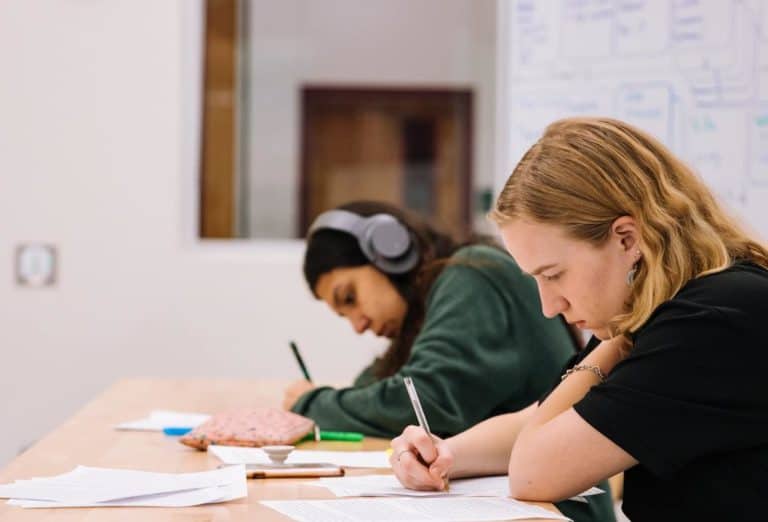
C-Tier: Great for Younger High Schoolers
8) AwesomeMath
Program Dates: Online, Session 1: June 6th – June 24th, Session 2: June 27th – July 15th, Session 3: July 18th – August 5th
Application Deadline: Early deadline: January 23rd, Regular deadline: March 27th, Late deadline: May 15th
Cost: $995 – $1,150 per course (discounts given for early applicants)
International Students: Yes
9) MathILy-Er at Bryn Mawr
Program Dates: July 2022 (Exact dates and online/residential TBD)
Application Deadline: Rolling admissions starting in Spring
Cost: if online – $2,150, if residential – $4,950 (financial aid available)
International Students: Yes
10) Mathworks at Texas State
Program Dates: June 19th – July 30th at Texas State (six weeks)
Application Deadline: April 15th, 2022
Cost: $4,800
International Students: Yes
**11) MathPath
Program Dates: June 26th – July 24th at Mount Holyoke College
Application Deadline: Rolling but recommend applying before mid-March
Cost: $5,350 (financial aid available)
International Students: Yes
C-Tier programs are not quite as competitive as the programs in higher tiers, but they can be great for younger high school students to develop mathematically before applying to a more competitive program the following year. could still open some doors to recommendations or other programs or scholarships.
While none of these programs has a lot of direct admissions value on their own, they can provide indirect benefits that will help in the college admissions process. For AwesomeMath, they focus almost exclusively on preparing for competition mathematics. Many of the instructors there were heavily involved in IMO, USAMO, and many other math competitions, so they have great practical experience with competitions themselves. By participating in this program, you likely will increase your AMC/AIME/USAMO scores, which will help you in admission down the line. MathILy-Er is run by the same folks who organize MathILy, so if you play your cards right, you might be able to get recommendations from instructors there to help you gain admission to MathILy or another more competitive program the next year. For Mathworks, they don’t require applicants to solve a problem set, so if you’re short on time for the application, this could be a great fit for you to see if you even really like to delve into math topics this deeply. Mathpath is for students aged 11-14, so it’s actually geared towards middle school students. For anyone looking to get a head start with younger students, it’s a good option and many of the students there go on to more challenging high school math programs.
There are probably a few more programs that belong in this category, but these are the ones that I can confidently say are run well. If you’re a young high schooler and you love math, these programs can be a great option to spend time in the summer.
Bonus Program
Summer Academy for Math and Science (SAMS)
Program Dates: June 5th – August 12th at Carnegie Mellon (six weeks)
Application Deadline: Early – February 9th, Regular – March 9th
Cost: Free
International Students: Yes (Application Deadline – February 23rd)
SAMS makes the list as a bonus program as it isn’t dedicated only to mathematics, but is definitely a valuable program. SAMS’ mission is to help underrepresented students in STEM, low socioeconomic status students, and first-generation prospective college students gain opportunities to delve into STEM topics. Applicants must submit family financial information as demonstrated financial need is a factor in admissions. Students attend STEM seminars and participate in a STEM project with a faculty member or graduate student, and then participate in a Symposium at the end of the experience. They also attend writing workshops to help with college application preparation.
You can also check out our list of the Best Math Programs for 2021.



